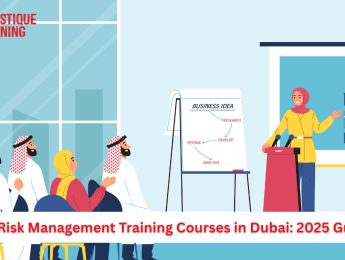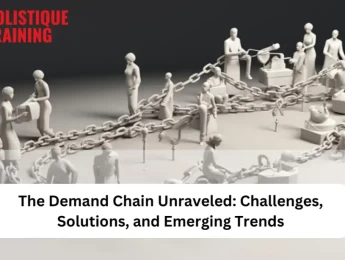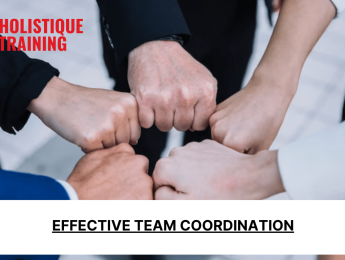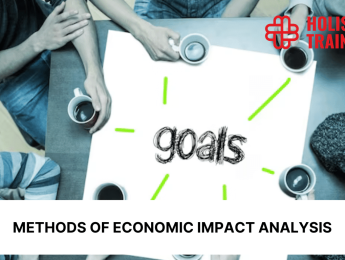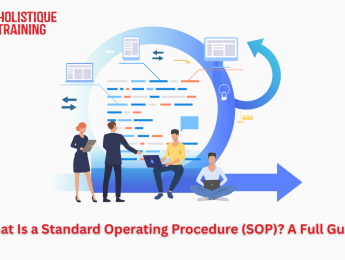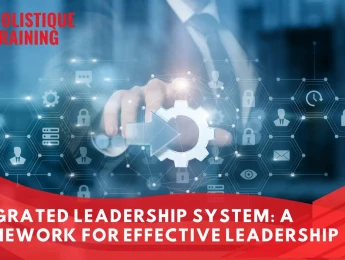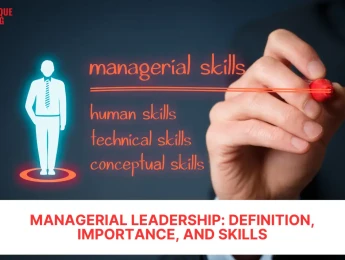- Table of Contents
- 1. Introduction
- 2. Key Benefits of Taking Risk Management Courses in Dubai
- International Accreditation & Credibility
- Contextualised Learning with GCC‑focused Case Studies
- Networking with Regional & Cross‑Sector Professionals
- Career Advancement and Leadership Readiness
- 3. Who Should Enrol in Risk Management Training?
- 4. Criteria for Choosing the Best Course
- Accreditation and Certification
- Updated and Practical Content
- Balance of Theory & Application
- Flexibility of Delivery
- Course Reviews and Trainer Experience
- 5. Top Rated Risk Management Training Providers in Dubai
- 1. PwC’s Academy Middle East (GRCA™ – GRC Auditor Certification)
- 2. Informa Connect
- 3. EuroMaTech
- 4. Agile Leaders – RIMS CRMP Exam Prep
- 5. GLOMACS – Complete Risk Management & Compliance
- 6. LSIB – Level 6 Award in Risk Management
- 7. Oxford Management / Atton Institute
- 8. Holistique Training – Project Risk Management: Effective Decision Making & Compliance
- 6. Comparison Table
- undefined7. Common Certifications Offered in Dubai
- ISO 31000 Lead Risk Manager / Practitioner
- PMI RMP (Risk Management Professional)
- RIMS CRMP (Certified Risk Management Professional)
- GRCA™ (GRC Auditor Certification)
- 8. Emerging Trends in Risk Management in the UAE
- Cybersecurity Risk Integration
- Environmental and ESG-Related Risk
- AI and Predictive Analytics in Risk Management
- Supply Chain and Geopolitical Risk
- 9. Final Tips for Selecting the Right Course
- Clarify Your Career Objectives
- Verify Accreditation and Course Credibility
- Consider Format and Flexibility
- Review Student Feedback and Trainer Profiles
- Engage with Alumni or Attend a Trial Session
- Conclusion
1. Introduction
In the context ofDubai’s fast‑paced, globally integrated business environment in 2025,risk management training is no longer optional—it is a strategic necessity. Organisations—from multinational banks in DIFC to large infrastructure developers on the Palm—face multifaceted risks:
- Geopolitical shifts, trade wars and supply‑chain bottlenecks.
- Cybersecurity breaches targeting digital banking and smart city infrastructure.
- Regulatory changes in ESG, anti‑money laundering, and data privacy.
- Environmental risks such as flooding, sustainability pressures and operational shutdowns.
Proactive upskilling in risk management enables professionals toanticipate emerging threats, evaluate their potential impact, and deploy mitigation strategies that align with business objectives. High‑quality training ensures professionals canintegrate global standards with regional context, assessing risk in sectors such as finance, construction and energy with confidence. Moreover, organisations benefit throughstronger governance, regulatory compliance, and enhanced resilience.
With the rapid digitalisation of operations and the UAE’s emphasis on regulatory frameworks—such asISO 31000, ESG reporting standards, and OCEG’s GRC models—the value of certified risk management training has never been higher.
2. Key Benefits of Taking Risk Management Courses in Dubai
International Accreditation & Credibility
Courses in Dubai provideglobally recognised certifications—such asISO 31000 Lead Risk Manager,PMI-RMP,RIMS-CRMP and GRCA™—that bolster your professional credibility and marketability. These certifications demonstrate you are aligned with best practices validated across industries.
Contextualised Learning with GCC‑focused Case Studies
Many providers adaptreal‑world examples from the GCC business environment, including construction megaprojects, financial services in DIFC, and public sector compliance cases. This ensures you can apply learned frameworks directly to regional challenges.
Networking with Regional & Cross‑Sector Professionals
Dubai courses attract delegates from banking, energy, government entities, logistics, consulting, and infrastructure. Engaging in group exercises and case study sessions allowsnetwork building across diverse sectors—which can be invaluable for consultancy roles or cross-industry projects.
Career Advancement and Leadership Readiness
Completing a recognised risk training course can qualify you for senior roles such as Risk Manager, Compliance Officer, Enterprise Risk Analyst, or governance consultant. Organisations in Dubai favour professionals with structured training in risk decision-making and regulatory compliance.
3. Who Should Enrol in Risk Management Training?
These courses are especially suitable for:
- Project and Operations Managers, who must proactively identify schedule and cost risks, and embed risk processes into project lifecycle.
- Compliance and Governance Officers, who are responsible for aligning operational policies with ISO 31000 frameworks, regulatory requirements, and ESG expectations.
- Risk Analysts and Financial Consultants, who perform quantitative and qualitative risk assessments for credit, investment, and strategic advisory.
- Insurance and Banking Professionals, addressing credit, market, operational and cyber risks, and ensuring compliance with central bank and regulator mandates.
- Sustainability and Supply Chain Experts, supporting risk‑based assessments in ESG, climate risk, supplier resilience and continuity planning.
The courses offermulti-level content, suitable for both mid‑career professionals seeking deeper technical skills and senior executives looking to lead risk governance strategies.
4. Criteria for Choosing the Best Course
When evaluating and selecting a training provider in Dubai, consider the following:
Accreditation and Certification
Ensure the course provides certification aligned with recognised bodies:ISO 31000,PMI-RMP,OCEG’s GRCA,RIMS‑CRMP, or similar. Accredited training demonstrates alignment with global risk frameworks and quality assurance.
Updated and Practical Content
Look for course materials updated for2025 standards and GCC regulations, including modules onAI‑driven risk analytics, ESG integration, emerging cyber risks, andsupply chain modelling. Confirm the provider includespractical case studies, simulations, and hands‑on tools.
Balance of Theory & Application
The most effective courses combinetheory (frameworks, regulatory standards) withapplication (workshops, group exercises, tool‑based analysis). This promotes deeper retention and transferability to real-world contexts.
Flexibility of Delivery
Opt for formats that suit your schedule and learning preferences:in-person,live online, orblended/hybrid. This can be especially important for working professionals balancing job and training.
Course Reviews and Trainer Experience
Check recentstudent testimonials and reviews, especially from GCC participants. Also, review the profiles of instructors—ideally, they should have both academic credentials andprofessional experience in Middle East risk governance, finance, or consulting.
5. Top Rated Risk Management Training Providers in Dubai
1. PwC’s Academy Middle East (GRCA™ – GRC Auditor Certification)
Course overview: PwC’s Academy is authorised by OCEG to deliver the GRCA™ course, recognised globally for Governance, Risk and Compliance auditing skills. It is aimed at professionals assessing GRC capabilities across organisations.
Content: The course includes instruction in audit frameworks, assurance methodologies, reporting and evaluating governance and compliance systems.
Who it's for: Governance, ethics, internal audit, GRC professionals building on the GRCP foundational status.
Format: In-person in Dubai, with open enrolment or bespoke corporate delivery.
Website: PwC’s Academy – GRCA™ course
2. Informa Connect
Courses: Offers ISO 31000:2018 Risk Management Certificate (typically 3 days) and advanced Enterprise Risk Management (ERM) courses (usually 4 days).
Accreditation: Direct alignment with ISO standard for risk management frameworks.
Delivery: Hybrid—offered live online or face to face in Dubai.
Website: Informa Connect – Audit, Risk & Governance Academy + advanced Enterprise Risk Management (ERM)
3. EuroMaTech
Course range: 5-day intensive programmes such as Risk Management for Projects, Programs & Operations and Effective Business Risk Management using ISO 31000
Certification: EuroMaTech internal certificate, recognised by corporates in MENA.
Strengths: Comprehensive, GCC focused case studies, and deep dives into ISO frameworks.
Website: EuroMaTech – Risk Management in Dubai UAE
4. Agile Leaders – RIMS CRMP Exam Prep
Course: Designed for professionals preparing for the RIMS CRMP certification and risk managers seeking structured exam readiness.
Delivery: Typically 5 day live or virtual classroom.
Certification: Certified by the Risk and Insurance Management Society.
Website: Agile Leaders – Advanced RIMS CRMP Certification prep
5. GLOMACS – Complete Risk Management & Compliance
Course: A 5 day project risk management programme with emphasis on threat/opportunity balancing, Monte Carlo simulation, bow tie analysis, and quantification methods.
Audience: Project managers, quality engineers, risk consultants working in construction, oil & gas, or infrastructure.
Format: Face to face in Dubai.
Website: GLOMACS – Project Risk Management & Compliance
6. LSIB – Level 6 Award in Risk Management
Course: UK-accredited Level 6 qualification in Risk Management, delivered online to Dubai participants.
Certification: Recognised UK qualification equivalent to final year of undergraduate.
Format: Fully online, flexible pace.
Website: LSIB – Level 6 Award Risk Management in Dubai
7. Oxford Management / Atton Institute
Courses: Tailored ERM and strategic risk governance programmes for mid to senior professionals.
Strengths: Emphasis on leadership in risk governance, integrating strategy, compliance, and decision making.
Format: In-person in Dubai and regional delivery.
Websites:
8. Holistique Training – Project Risk Management: Effective Decision Making & Compliance
New addition: A 5-day advanced course in Dubai focusing on project-level risk, decision-making frameworks, and compliance mechanisms.
Content: Topics include stakeholder alignment, cost-benefit analysis, regulatory compliance, performance governance, as well as risk identification and management.
Who it's for: Project managers, compliance officers, technical leads and governance advisors.
Format: In-person in Dubai.
6. Comparison Table
Provider | Course Name | Duration | Certification | Format |
PwC Academy | GRCA™ (GRC Auditor Certification) | Varies | OCEG GRCA™ | In person |
Informa Connect | ISO 31000 / ERM Certificate | 3–4 days | ISO / ERM | Hybrid |
EuroMaTech | Risk Management / ISO 31000 Framework | 5 days | EuroMaTech Certificate | In person |
Agile Leaders | RIMS CRMP Prep | 5 days | RIMS CRMP | Online/live |
GLOMACS | Project Risk Management & Compliance | 5 days | GLOMACS Certificate | In person |
LSIB | Level 6 Award in Risk Management | Flexible | UK accredited Level 6 | Online |
Oxford / Atton | Enterprise Risk & Strategic Planning | Varies | Institutional | In person |
Holistique Training | Project Risk Management: Effective Decision Making & Compliance | 5 days | Holistique Certificate | In person |
7. Common Certifications Offered in Dubai
ISO 31000 Lead Risk Manager / Practitioner
This certification prepares delegates to lead implementation of the ISO 31000 risk framework across organisations. Frequently offered by Informa Connect and EuroMaTech; recognised globally and relevant to GCC compliance.
PMI RMP (Risk Management Professional)
Offered by PMI-authorised providers; focuses on project risk processes aligned with PMBOK. Ideal for project managers in construction, engineering or project-based organisations.
RIMS CRMP (Certified Risk Management Professional)
Awarded by the Risk & Insurance Management Society. Agile Leaders offers a prep course in Dubai. Emphasises risk governance, evaluation, and strategic controls.
GRCA™ (GRC Auditor Certification)
Delivered through PwC’s Academy as the OCEG-certified auditing credential. Suitable for professionals assessing integrated governance and compliance frameworks.
8. Emerging Trends in Risk Management in the UAE
The landscape of risk management in the UAE is evolving rapidly, shaped by technological innovation, regulatory shifts, environmental pressures, and the country’s pivotal role in international trade. Here’s a detailed look at four of the most critical trends influencing risk management strategies and training needs in Dubai and the broader UAE:
Cybersecurity Risk Integration
As the UAE accelerates its digital transformation agenda—through initiatives such as Smart Dubai and widespread cloud infrastructure adoption—cybersecurity has moved from being an IT concern to a boardroom priority.
Organisations, especially those in financial services, utilities, aviation, and healthcare, are recognising that cyber risk is an enterprise-level threat.
Modern risk frameworks now demand that cybersecurity risks be embedded within the Enterprise Risk Management (ERM) structure, not treated in isolation. Courses in Dubai are increasingly integrating modules on:
- Cyber threat modelling and impact analysis
- Regulatory compliance (e.g. GDPR, NESA, ISO/IEC 27001)
- Crisis response and incident recovery
- Third-party cyber risk and data breach protocols
With the increasing sophistication of ransomware, phishing attacks, and supply chain intrusions, cyber risk has become a fundamental component of all risk leadership programmes.
Environmental and ESG-Related Risk
The UAE's focus on sustainability—particularly in the lead-up to and following COP28—has made Environmental, Social, and Governance (ESG) risk assessment a top agenda item for corporates and public sector institutions.
Risk professionals are now expected to:
- Evaluate climate-related financial risk
- Integrate ESG metrics into operational decision-making
- Comply with new frameworks such as TCFD, GRI, and UAE ESG Disclosure Guidance
- Identify reputational, legal, and regulatory risks related to sustainability
Training courses are adjusting accordingly, offering deep dives into green risk modelling, carbon exposure, and environmental compliance strategies.
Organisations that ignore ESG risks face increased scrutiny from regulators, investors, and civil society—making this an urgent upskilling priority.
AI and Predictive Analytics in Risk Management
Artificial intelligence (AI) is revolutionising how organisations predict, assess, and respond to risk. In Dubai’s tech-forward business climate, the adoption of AI-driven tools in risk management is growing rapidly.
Current training courses now cover:
- Predictive analytics for early warning systems
- Scenario-based risk simulation using machine learning algorithms
- Data visualisation and risk dashboards for real-time decision support
- Risk scoring automation and prioritisation based on historical trends
These capabilities enable professionals to shift from reactive to proactive risk postures. For sectors like logistics, energy, and fintech, AI-enabled forecasting is already transforming how strategic decisions are made.
Supply Chain and Geopolitical Risk
As a global trade and logistics powerhouse, Dubai’s economy is highly exposed to supply chain disruptions and geopolitical fluctuations. The COVID-19 pandemic, conflicts in global shipping corridors, and inflationary pressures have highlighted the fragility of interconnected systems.
Risk leaders in the UAE are now tasked with building resilience through:
- Supplier diversification and tier mapping
- Geopolitical risk monitoring (e.g. sanctions, trade embargoes)
- Inventory risk modelling using just-in-case versus just-in-time frameworks
- Integration of supply chain risk with sustainability and ESG assessment
Courses in Dubai increasingly reflect these realities, with case studies drawn from real-world scenarios affecting regional ports, oil exports, and international logistics hubs. The goal is to build professionals who can manage systemic risk across global networks with agility and foresight.
9. Final Tips for Selecting the Right Course
Choosing the right risk management training programme in Dubai is a strategic investment—one that can influence your career trajectory, leadership readiness, and impact within your organisation. Here are five final recommendations to guide your decision:
Clarify Your Career Objectives
Are you looking to enhance your role in project risk, shift into enterprise-wide governance, or specialise in cybersecurity, ESG, or compliance? The right course should align with your intended career path and offer role-specific modules.
Verify Accreditation and Course Credibility
Ensure that the provider is officially licensed to deliver globally recognised certifications such as ISO 31000, PMI-RMP, RIMS-CRMP, or GRCA™. These credentials carry weight in both the UAE labour market and internationally.
Consider Format and Flexibility
Evaluate whether you prefer in-person training—ideal for deep networking and engagement—or online/hybrid delivery that fits around your job. Some providers also offer self-paced modules, helpful for professionals managing demanding schedules.
Review Student Feedback and Trainer Profiles
Look beyond marketing brochures. Check recent reviews, especially from participants in Dubai or the GCC. Investigate the qualifications and field experience of instructors—industry experts often provide far more actionable insight than purely academic trainers.
Engage with Alumni or Attend a Trial Session
Ask the training provider to connect you with alumni or invite you to a demo session. This will give you a feel for the teaching style, course depth, and practical application—crucial factors in long-term value.
Conclusion
Dubai offers a rich portfolio of world-class risk management training tailored to regional and global standards. From PwC’s Academy to Holistique Training, providers deliver expertly designed courses covering project risk, enterprise risk, compliance and governance. Whether you are starting your risk management journey or seeking to enhance executive capabilities, the right course can significantly elevate your credentials, decision-making skills and professional impact.
With globally recognised certification routes, flexible course formats, and contextualised content aligned with regional industry needs, now is the perfect time for professionals to invest in their future. Whether you prefer in‑person immersion in Dubai or hybrid learning, these top‑rated programmes will position you to lead with confidence in today’s uncertain business environment.


